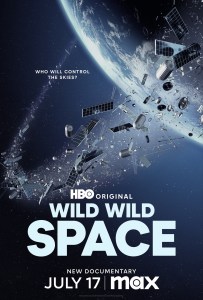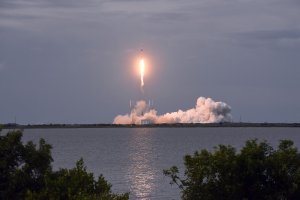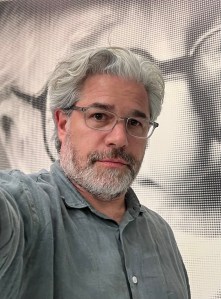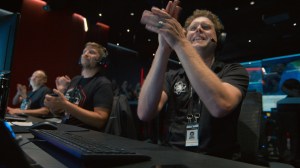More than 10,000 satellites are currently spinning around the globe – and there would be even more had a SpaceX Falcon 9 rocket not failed in its upper stage last week, preventing the proper deployment of a batch of Starlink satellites.
That anomalous incident notwithstanding, the number of satellites orbiting Earth, commercial and otherwise, is expected to quadruple in the coming years, a dramatic development explored in the new HBO documentary Wild Wild Space, directed by Oscar winner Ross Kauffman (Born into Brothels).
Originally, launching satellites was the preserve of governments, beginning with Sputnik 1 in October 1957. But as Wild Wild Space shows, it has become an increasingly commercialized venture, pursued by a fascinating array of visionary entrepreneurs – some eccentric, some perhaps delusional. There’s Elon Musk, of course, CEO of SpaceX; but this is not another Elon Musk documentary. The rocketeers populating Wild Wild Space include Chris Kemp, co-founder/CEO of Astra Space; Peter Beck, founder and CEO of Rocket Lab; Will Marshall, co-founder and CEO of Planet Labs; and Pete Worden, a retired U.S. Air Force general.
Peter Beck (right), CEO of Rocket Lab
Courtesy of HBO
“It was the luxury of having these characters who were so weird and willing to open up,” says producer Ashlee Vance. “I just felt like it was a different space story than you’ve ever seen before.”
Wild Wild Space, which premieres Wednesday on HBO and will be available through Max, is inspired by Vance’s book When the Heavens Went on Sale: The Misfits and Geniuses Racing to Put Space Within Reach. It laid out a “frenzied intergalactic land grab” going on above our heads.
“When I read the book, I loved the tone so much,” Kauffman tells Deadline. “I was thinking, how can I really get this sort of quirky, sardonic tone into the film along with all the rocket science, along with all the issues that are going on. And I just started with the characters, some of the characters that Ashlee had incredibly connected with.”

Astra Space CEO Chris Kemp in costume at a company event.
Courtesy of HBO
Rocket Lab’s Beck, a brilliant engineer who never attended college, dismisses some of his rocket rivals as making “shit.” Kemp, the dashing, telegenic head of Astra Space, seems eager to self-mythologize to the point he risks comparison to Elizabeth Holmes. Worden, despite the fruit salad of military decorations on his chest, comes off as an affable Yoda to a group of young Jedis eager to make their mark in space.
Vance also appears on camera throughout the film, providing helpful commentary on the characters and the stakes involved in the satellite space race. We’re talking about technology that underpins our economy and contemporary lifestyle.

Courtesy of HBO
“The argument we’re making in the movie is that it is already this glue of modern life that we kind of take for granted,” Vance explains. “It is quite fragile, very fragile. It’s not as easy to fix as anything that goes wrong here on Earth, but it seems quite clear — to me at least — that this is only going to increase and we’re building the next step of our modern infrastructure in orbit.”
Vance adds, “You see it with [SpaceX subsidiary] Starlink, for example. This is the first worldwide telecommunications network that does not have borders on it and is becoming this always-on sort of a fabric that people can depend on. That is the next step as we become ever more connected, and the internet just becomes ever more pervasive.”

SpaceX launches a rocket carrying a satellite payload in 2020.
Mega
Musk might be called a supporting player in the film – if you’re talking rockets and satellites, one can’t ignore him. A section of Wild Wild West is devoted to the war in Ukraine, where Starlink satellites became critical to that country’s defense in the midst of full-scale invasion by Russia. But Musk, reputedly because he wished Starklink to be used for civilian and not military ends, would not allow Ukraine to access the Starlink bandwidth for the purpose of attacking Russian-occupied Crimea.
“The Ukraine thing is a weird situation where it’s like if SpaceX hadn’t done all this stuff [deploying Starlink satellites], they would’ve been in really, really much worse shape in this war,” notes Vance. “But then it’s so unusual that you have to turn to the whims of one person as you try to conduct this war. Some of this, I think, is the fault of the U.S. government and Western allies. They could have built a satellite network like this. They, in fact, have thought about it for decades and just never had the wherewithal to actually pull it off. And Elon did. But then as a result of that in action, you put yourself in some extraordinarily precarious positions.”

Director Ross Kauffman
Courtesy of Ross Kauffman
“It encapsulates one of the big themes of the movie,” says Kauffman, “which is this huge, this epic shift from governments — whether it’s the internet, whether it’s space — to individuals, to capitalists, to people trying to quote unquote ‘save the world’ or people trying to make money in the world. It’s just a shift.”
Wild Wild Space also serves as a wakeup call. The documentary points out that Russia has tested missile technology that could shoot satellites out of the sky. Debris from any such explosions could potentially destroy the entire satellite system, especially if and when low Earth orbit whirs with tens of thousands of satellites. And there’s more.
“I read something the other day saying that the U.S. is woefully unprepared if anything happens to their satellites,” Kauffman says. “China is trying to figure out their own internet and GPS constellation, but the U.S. has no backup plan right now. And that’s scary.”
Musk, Beck, Marshall, and others to the rescue? We’ll see.

